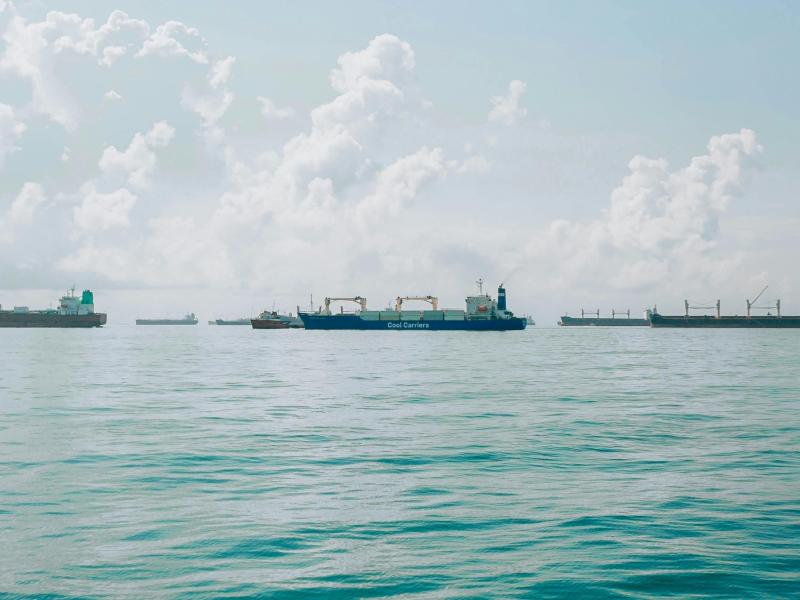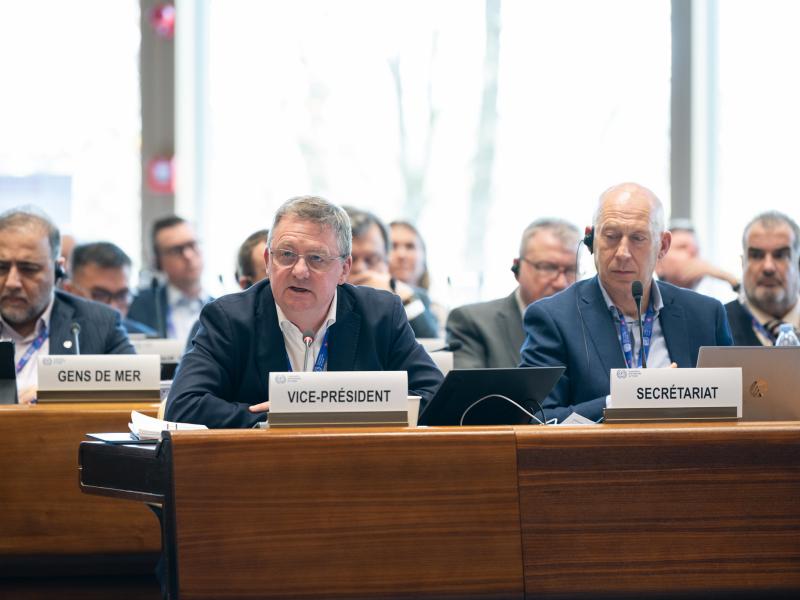By Anna Birch-Schmidt for 3F Fagbladet. Reposted with permission.
A shipowner in Thyboøren, Denmark has been charged with human trafficking and violation of the Danish Aliens Act after exploiting two Ghanaian sailors and subjecting them to labour under slave-like conditions.
For more than three years, two African sailors worked under slave-like conditions aboard a fishing vessel in the Danish village of Thyborøn. No holidays and 11-hour days six days per week was the norm for Reuben Kotei and Justice Numo, who travelled to Denmark from Ghana on the false promise that they would be captaining a ship back to Africa.
“You say that we have been treated like slaves. I am never happy to be called names, and especially not when I then find the name to be true,” says 57-year-old Reuben Kotei who, together with 52-year-old Justice Numo, is now under the protection of the Danish Centre against Human Trafficking until after their trial in August.
Police in Denmark have charged a 55-year-old Danish shipowner with human trafficking for employing the two men without the necessary labour permits and for assisting their unlawful stay in the country.
According to the indictment, the prosecuting authority is seeking imprisonment, fines and compensation on behalf of the two Ghanaian men as well as confiscation of the shipping vessel concerned which is owned by the accused and his company.
Soldiers in war
Reuben Kotei and Justice Numo lived on board the fishing vessel and were paid just 1,200 euros per month for their labour.
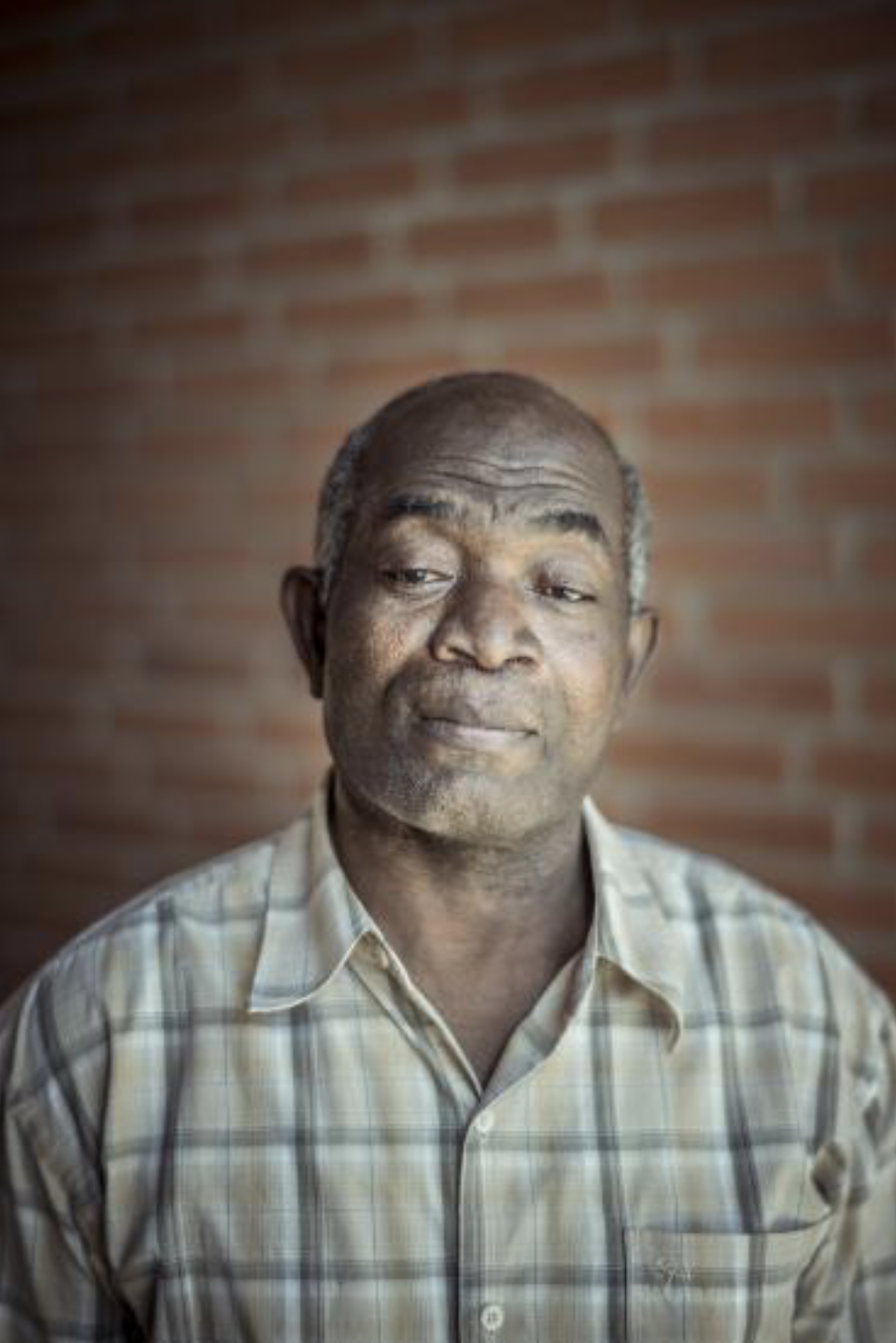
They did not have any time off during the entire time they were working in Denmark. The shipowner withheld their passports and travel documents. In addition, after their work and residency permits expired on 3 April 2017, the two men no longer had a legal right to remain in Denmark, as they explain to Fagbladet 3F.
They were told that contacting the authorities would only bring trouble upon themselves considering that their papers were not in order. So they kept quiet and put up with the terrible working conditions.
“We were dependent on the money, and in our culture, you keep your head down and don’t ask questions. We were soldiers in war. And when you’re at war, you persevere until the battle is won or lost. There is no expiration date,” says Reuben Kotei.
The two Ghanaian men were also told not to stray beyond a radius of 500 metres from the ship, otherwise there would be consequences.
Back to Senegal
Reuben Kotei and Justice Numo first met the Danish shipowner back when they were working in Senegal. Reuben Kotei explains that he helped the shipowner to find the best fishing spots along the Senegalese coast. The shipowner then asked the two Ghanaian men if they would like to return with him to Denmark to help him put the finishing touches on his fishing vessel, the Emma Helene.
The plan was that Reuben and Justice would then sail the boat back to Senegal.
“We were told it just needed painting and then it would be ready for departure. We only expected to be in Denmark for a short time,” explains Reuben Kotei who has worked as a sailor for a great many years.
Following a collision in the harbour, the Emma Helene sank before it ever managed to get out of Thyborøn. Consequently, Reuben and Justice were assigned to another ship, the Helene, instead.
Still with the goal of preparing the vessel for a return voyage to Senegal.
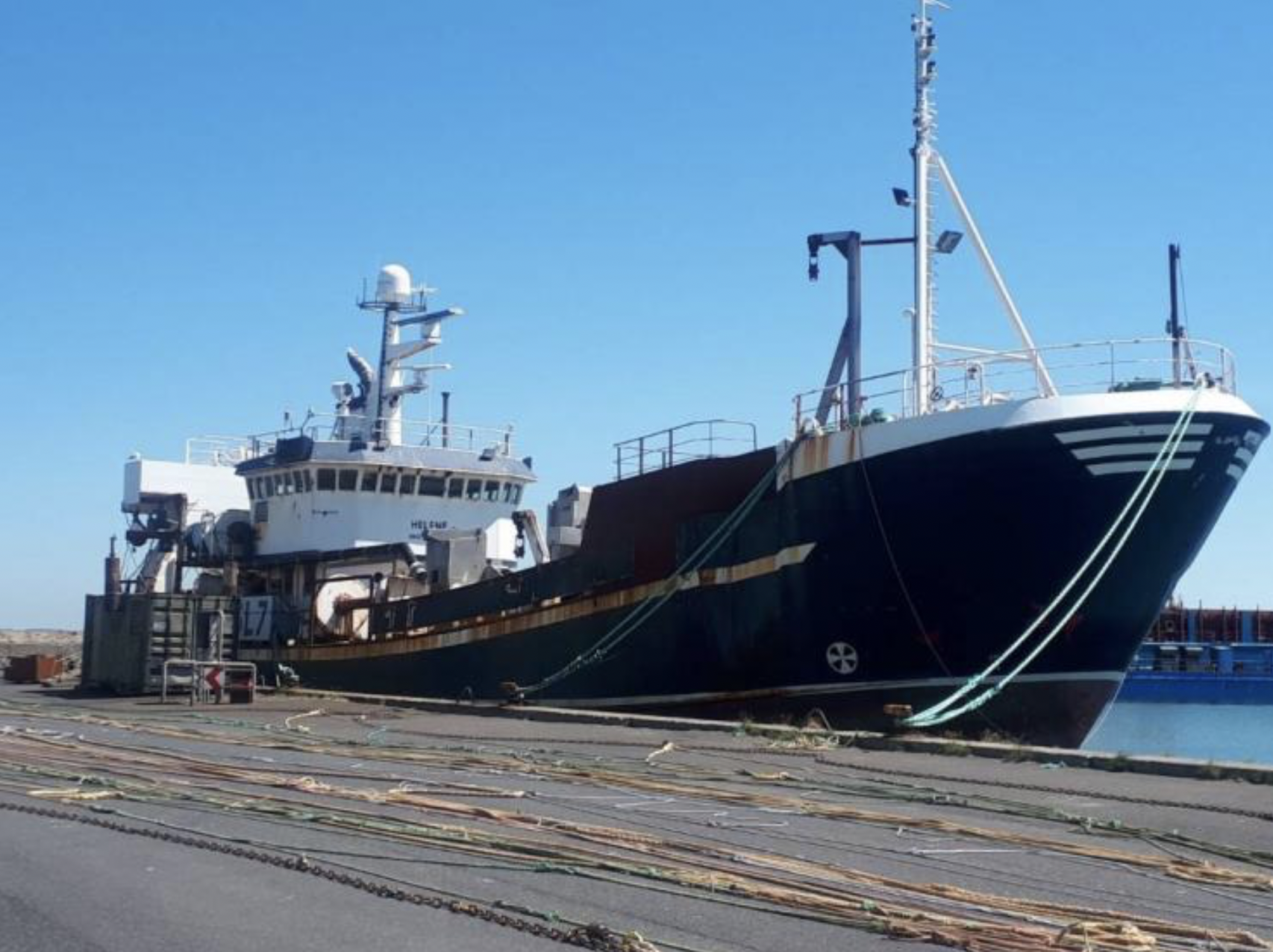
No more questions
Three years later, the two Ghanaian men found themselves still on board the Helene with no immediate prospects of returning to Africa.
Until 26 May 2020, Reuben Kotei and Justice Numo each lived in their own small cabins on board the ship. They worked on the Helene, completing odd jobs on the ship and working on other fishing vessels owned by the same employer.
“Over the years, I would ask offhand when he [the shipowner] expected we might be ready to set sail. His response was always that it would probably be around another three months. Eventually, I just stopped asking,” says Justice Numo.
Although the Helene is owned by a Danish shipowner, the boat sails under the Belizean flag. By sailing under the Belizean flag or other so-called flags of convenience, the shipowner can get away with not paying Danish taxes or complying with Danish health and safety requirements. Crews on such boats are often left to contend with little security, miserable working conditions and shipowners who take no responsibility for the workers’ health or well-being.
Fagbladet 3F has also learned that the same Danish shipowner owns another ship, the Amalie, which is similarly registered under the Belizean flag and berthed in Thyborøn harbour. It was home to three other Ghanaian citizens who were imported to Denmark in April this year. These three men have now been deported by Danish police and will be flown out of the country as soon as the current coronavirus restrictions allow.
No holidays, no family visits
Although the Amalie sailed to Ghana on 7 March 2019 to bring the three other African sailors to Denmark, Reuben Kotei and Justice Nemo were not given the opportunity to join the voyage and sail back to their families.
Each month, the two men sent a large share of their earnings back to their wives and children in Ghana. It has been more than three years since they last saw their families, as without any relief from their duties, they have not been able to travel home. All contact has been through iPad screens.
“It is really tough. We speak with our families day and night, and they are always asking when we’ll be coming home again. We don’t know how to answer them. We miss them an awful lot,” says Justice Numo.
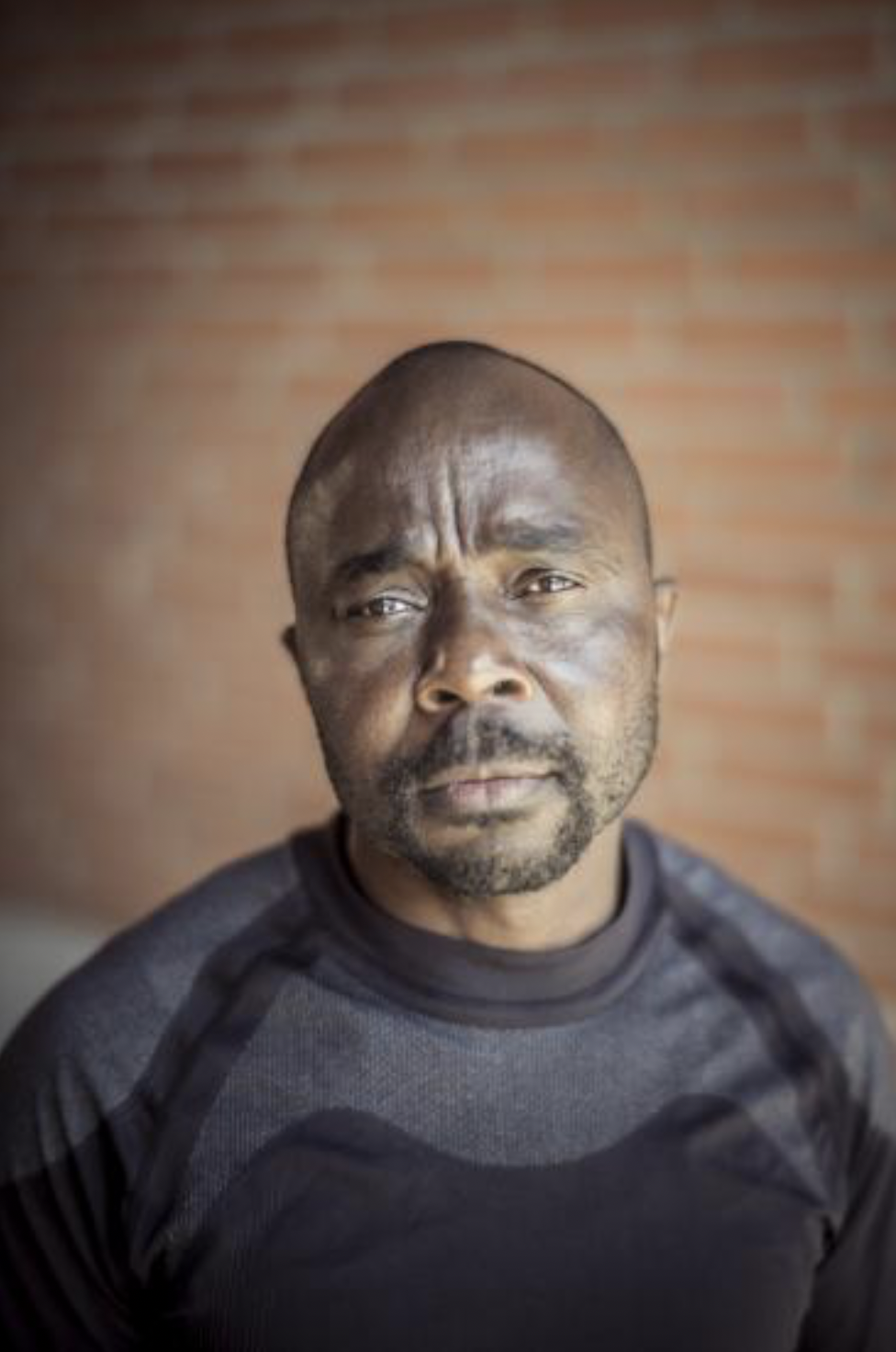
“Grotesque”
With 12 years of experience as an ITF inspector (International Transport Workers’ Federation), Morten Bach is no stranger to cheating and deception in Danish waters. He was, therefore, not surprised to hear that two Ghanaian men had been living and working under slave-like conditions for more than three years.
“I am deeply outraged that a Danish shipowner would rob two human beings of their freedoms and treat them in such a degrading manner. It is grotesque,” says Morten Bach, who works under the 3F transport group.
Among other things, it is his job to go on board ships in Danish waters and check up on contracts, working hours, salaries and other conditions.
Morten Bach reports that he comes across a few such cases each year which involve foreign citizens working in wretched conditions wherein it is completely unknown to both the police and the Danish Maritime Authority.
“I am very glad the police managed to get him. And it is great to hear that his two victims have now been liberated from his charge,” says Bach.
The dream of compensation
The case will be heard at Holstebro Court on 21 August and 31 August.
According to the indictment, the two men are seeking compensation of 40,562 euros each – not an insignificant amount of money for the two Ghanaian sailors. If Reuben Kotei and Justice Numo are able to leave Denmark with compensation for their ordeal, Reuben Kotei hopes to realise a great dream of his:
“If we get the money, then perhaps I will finally be able to buy a boat of my very own,” he says.
Fagbladet 3F sought a comment from the shipowner’s defence counsel, Peter Secher, who declined to remark on the case and did not wish to confirm his involvement in the upcoming proceedings. Fagbladet 3F also approached the shipowner for a comment but did not receive a response.
The Indictment:
According to the indictment, the shipowner is charged with violating paragraph 262a, item 1 of the Danish Penal Code which concerns human trafficking, considering that the men concerned were subjected to forced labour or to slave-like conditions for a period of time between February 2017 and 26 May 2020.
The 55-year-old and his company have also been charged with violating the Danish Aliens Act by having employed the two foreigners without the necessary work permits and under aggravating circumstances.
The ITF View:
Johnny Hansen is the Chair of the International Transport Workers’ Federation (ITF) Fisheries’ Section. He says the appalling treatment of these Ghanaian men by a Danish shipowner is just the latest example that shows slavery continues in modern times, often in plain sight along the shores of countries that pride themselves on their human rights records.
“This shows that we still in 2020 have slavery onboard fishing vessels, and that this kind treatment of fishers might happen everywhere,” he said.
Hansen said combatting slavery and human rights abuses in the fishing industry remains a priority for the ITF.
“We have an ongoing campaign in Ireland to support migrant fishers to stand up for their human and labour rights, and to hold the people who exploit them to account. Many of those exploited are from North and West Africa, with some from Ghana. We’ve even had to take the Irish Government to court to make them address this growing problem in their own waters,”
“Governments need to be doing more. It’s not good enough that this year the US State Department found a country like Ireland had “weakened deterrence, contributed to impunity for traffickers, and undermined efforts to support victims to testify”. In our view, to be silent on modern slavery is to be complicit in it,” said Hansen.
3F is a Danish union which supported the Ghanaian men to seek freedom and justice, and is affiliated to the ITF.
Story by Anna Birch-Schmidt, photos by Michael Drost-Hansen for 3F Fagbladet. ITF View added supplementarity. Reposted with permission.

